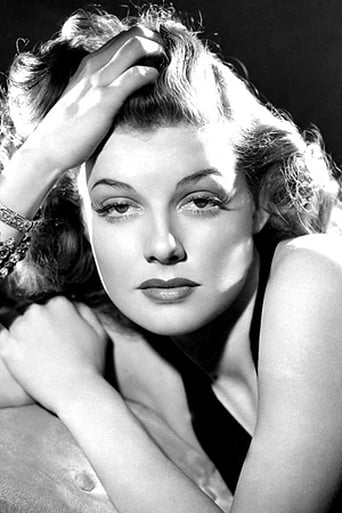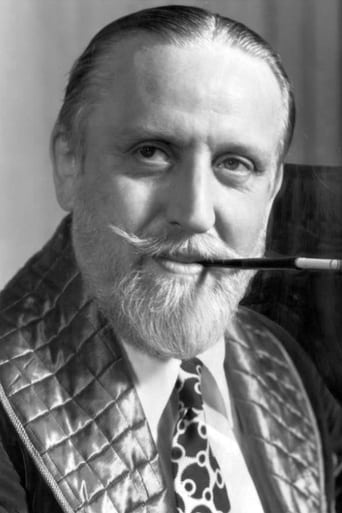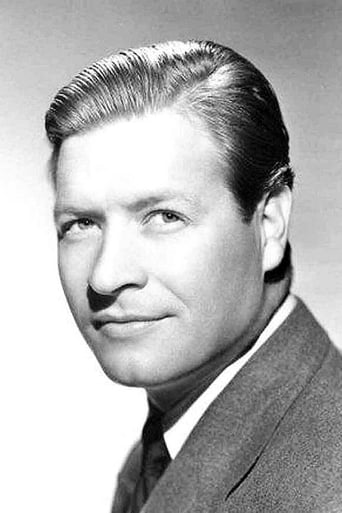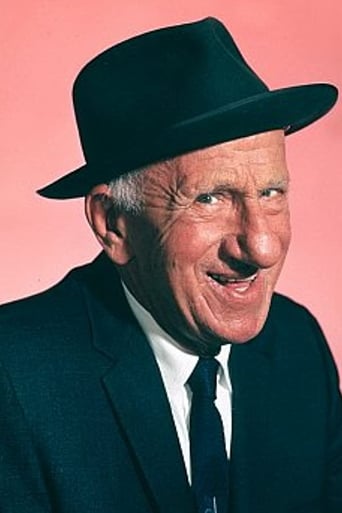Softwing
Most undeservingly overhyped movie of all time??
Supelice
Dreadfully Boring
filippaberry84
I think this is a new genre that they're all sort of working their way through it and haven't got all the kinks worked out yet but it's a genre that works for me.
Billie Morin
This movie feels like it was made purely to piss off people who want good shows
l_rawjalaurence
Let's face it, if viewers are not at least acquainted in some way with the socio-historical context that inspired Hart and Kaufman's classic play (and William Keighley's film), they are going to find it slightly difficult to understand.If we are not aware that Sheridan Whiteside (Monty Woolley) is an affectionate parody of Alexander Woollcott, at the time a national celebrity due to his radio program, then we will not really understand just what a monster he actually is; the former doyen of the Algonquin Round Table group who took malicious pleasure in insulting everyone just for the sake of it. George S. Kaufman, another member of that Round Table, uses Whiteside both to criticize yet celebrate Woolcott's monstrosity.Likewise we need to understand how Reginald Gardiner's Beverley Carlton is a parody of Noel Coward: another member of the Round Table, he had become a star on both sides of the Atlantic, as well as the epitome of the rather effete English upper class twit. Gardiner is asked to play that role in Keighley's film, and very funny he is too.Banjo (Jimmy Durante) was apparently baaed on Harpo Marx: not much of Harpo's qualities emerge in Durante's performance, but instead we see Schnozzle emoting at all throttle, having the chance to jingle away at the piano keys as well as providing one of the main means by which the complicated plot can be wrapped up.There is a story of sorts, but in truth Keighley's film is something of a showcase for the talents of actors performing against type. Bette davis's Maggie Cutler is strangely muted, as she tries and mostly succeeds to put up with Sheridan's whims, while the grande dame role (that Davis customarily played) is here given to Ann Sheridan. Sheridan grasps the opportunity with both hands, offering a series of stylized cameo performances - appropriate to her belief in herself as a "great actress" - reminiscent of Margo Channing in ALL ABOUT EYE (1950).Apparently Davis was not entirely satisfied with the casting of Woolley in the central role. Yet perhaps that latent antagonism helped the film rather than hindered it - although professing enduring respect for the celebrity, Maggie holds his whims in infinite contempt. As a former Yale University academic, Woolley approaches the role of Whiteside with the same kind of bravura energy that he might have done had he been lecturing first year undergrads. He is so firmly convinced of his own rightness that he remains utterly imperious to anyone else's feelings.THE MAN WHO CAME TO DINNER might be a period-piece, but is nonetheless a very funny one.
gavin6942
When acerbic critic Sheridan Whiteside slips on the front steps of a provincial Ohio businessman's home and breaks his hip, he and his entourage take over the house indefinitely.Four of the leading characters are based on real-life personalities. Sheridan Whiteside was inspired by celebrated critic and Algonquin Round Table member Alexander Woollcott, who eventually played the role on stage; Lorraine Sheldon, by musical stage actress Gertrude Lawrence; Beverly Carlton, by playwright and renowned wit Noël Coward; and Banjo, by Harpo Marx.Whiteside comes off as a cross between WC Fields (with his witty remarks) and the Simpsons' Comic Book Guy (with his mocking condescension). He is both a joy to watch, and simultaneously a wretched monster to be reviled. The romance is really the thread that ties everything together, but it hardly carries the film the way Whiteside does.
dougdoepke
No need to recap the plot.For contemporary audiences the 2-hours is likely a matter of taste. For sure, the literary script is totally unlike today's raw comedic antics. The curmudgeonly Whiteside (Wooley) manages to insult just about everyone, but in highly elevated fashion. At times, his jibes are a little much and you want to conk him, but somehow the actor avoids making the snobbish character dislikable. All in all, it's a pretty good thespic feat. The movie's a filmed stage play, which means the director has to keep our eye entertained, which he does by shuffling characters in and out, resulting at times in a kind of madcap. Despite the large cast, and the presence of marquee names like Davis and Sheridan, everything revolves around Wooley's Whiteside. Then too, I suspect other reviewers are correct —Durante's low-brow humor was included as relief from that general flow of sophistication. I'm not surprised the play was a hit in New York City. However, it was apparently a big hit nationally, meaning less cosmopolitan audiences also responded. That, I think, is a tribute to not just Wooley, but the production as a whole. Still, the movie dates itself with passing references to celebrities of the day. And note, in passing, how common man Banjo (Durante) refers to the (Brooklyn) Dodgers, which soon became a movie staple for the common WWII war effortAnyway, for folks wanting a strong contrast to the gutter-language comedy of today, this is a film to catch.
richard-1787
This is a superlative comedy. Some of the other reviewers on here have complained that it's just nasty characters acting nastily. It's far more than that. It's a remarkably example of an ensemble piece - yes, an ensemble piece - that works perfectly because the director and all the leads - and there are many of them - are at the top of their form.Monty Woolley is wonderful as the almost completely unrepentant Sheridan Whiteside, the syrupy radio commentator who, in real life, delights in ridiculing everyone around him.But Woolley, while wonderful, is not the only outstanding performer here. Ann Sheridan, who is barely remembered today, mostly because she made a lot of undistinguished movies, proves to be a very fine comedian, playing the part of the excessive actress - think Vera's character in "Auntie Mame" - to a T. Her sparring scenes with Bette Davis are among the high points of the movie. It doesn't hurt that she looks very beautiful.Grant Mitchell plays his part seriously, and that makes it all that much more effective. The same is true of Davis, who comes off as a very real woman and not just a straight woman to Whiteside's outbursts.Reginald Gardner gives what is the best performance I recall seeing from him, and Durante does his usual comedic job. Mary Wickes, when she finally breaks down and quits, announcing that she is forsaking nursing to work in a munitions plant, turns what could be a forgettable role into another star turn.Even Ruth Vivian, as Mr. Stanley's sister, adds an ethereal something to her brief appearances.The short romantic scenes between Davis and her romantic interest, Richard Travis, are unremarkable, but probably necessary to provide a respite from what sometimes becomes chaotic craziness.The last scene is at a level with all the best that precedes it. Yes, of course, Whiteside slips and falls on the stairs again. But we're not left with that, which would have been obvious. Rather, we're left with an imitation of Eleanor Roosevelt's voice on the phone.There is a lot of name-dropping in this movie, figures from the New York stage of the time and the art world that may not mean anything to many today. That's unfortunate.But ignore what you can't catch. The rest will still entertain you royally.





